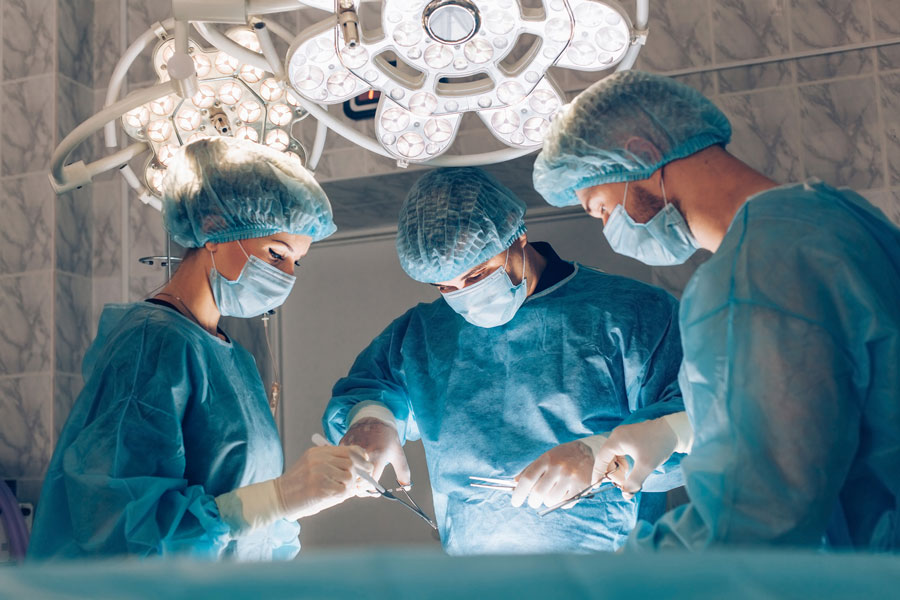Surgeons and dentists cancel nonessential procedures
Published at | Updated at
IDAHO FALLS — Don’t be surprised if your scheduled surgery or dental cleaning gets canceled because of the novel coronavirus outbreak.
The recent changes are in response to President Trump, the U.S. Surgeon General Jerome Adams and the American Dental Association, which recommended elective procedures stop nationwide, given the circumstances.
The recommendation has had wide-ranging consequences ranging from inconvenienced patients all the way to laid off medical staff.
Local hospitals
Mountain View Hospital Chief Medical Officer Dr. Troy Brumfield said that his facility is temporarily suspending “medically unnecessary surgical procedures,” such as cosmetic procedures. Brumfield emphasized that Mountain View will continue to provide both emergency and medically necessary elective procedures.
“Many people are confused by the term ‘elective surgery.’ It is easy to assume that elective means completely optional (like cosmetic surgery),” Brumfield said in a news release. “But elective surgery actually takes on a broad range of essential services. … If a patient does not face significant harm by waiting, they will wait until our public health crisis allows more flexibility.”
Elective surgeries are medical procedures booked in advance because it isn’t an emergency. Mountain View has no emergency room and is known mostly for its nonemergency surgeries.
Brumfield said when it comes to hospital care, Mountain View’s sister hospital, Idaho Falls Community Hospital, is the entry point for COVID-19 patients. At the same time, Mountain View is open to care for community members’ medical needs that are outside of the COVID-19 event, he said.
“Our community needs a range of facilities that work collaboratively to meet the different and ongoing needs of many patients,” Brumfield told EastIdahoNews.com. “All of our region’s providers are working together right now to provide the best possible care for everyone.”

For patients who have a procedure scheduled, Brumfield said the medical staff themselves are sitting down with each of the patients. Together, they assess if the procedure is something that can wait or if their medical condition is severe enough they need it taken care of sooner than later.
“For example, a patient may have a cancerous tumor that needs to be removed from the abdomen,” Brumfield explained. “Even those patients might be worried right now. They might be asking, ‘What time window is safe for me with this cancer versus this pandemic event?’ While removing the tumor is technically an elective surgery, there is a much bigger health risk to the patient if they wait until after the pandemic to have it removed.”
He said they’ve seen the number of surgeries reduced slightly based on the doctor and patient deciding what’s best for their needs in light of the pandemic.
Brumfield added that doctors are highly concerned with the amount of medical supplies available for future care, and they are actively trying to limit the stress on their providers. In some cases, doctors are encouraging patients to wait for surgery if they face no significant harm.
Madison Memorial Hospital in Rexburg is also providing both emergency and medically necessary elective procedures. After March 27, they are stoping all elective surgical procedures that can be delayed, according to a news release.
“While we don’t necessarily anticipate a huge strain on our hospital’s surgical resources from this epidemic, we do think it is prudent to be prepared,” Madison Memorial Hospital Chief Medical Officer Dr. Clay Prince said in a news release. “Some of the procedures we do can safely be postponed until this present danger has passed, so we are going to do what we can to avoid those interactions, to completely eliminate that particular risk of contagion.”

He said patients may be inconvenienced having to wait to receive a procedure, but any procedure that is truly necessary, time-sensitive or lifesaving, they will remain ready and able to do.
“As far as the local medical community goes, we as a hospital are making staffing adjustments across our organization to account for these new dynamics. We suspect similar adjustments are being made in hospitals and clinics across the region and across the state,” Prince told EastIdahoNews.com. “So far, we are mainly adjusting duties and reassigning staff, and we hope to not need to reduce our workforce in response to these changes.”
But some clinics — particularly dental clinics haven’t been as lucky.
Dental clincs
Dr. Esther Machen, owner of Machen Family Dentistry in Idaho Falls, laid off 12 of her 15 employees on March 17. The American Dental Association announced the day before that to help mitigate the spread of COVID-19, it only wants dentists to see only emergency patients. Last week, Machen Family Dentistry began telling patients that unless it’s an emergency, appointments are canceled for three weeks.
“Concentrating on emergency dental care will allow us to care for our emergency patients and alleviate the burden that dental emergencies would place on hospital emergency departments,” the American Dental Association said.
Aerosol spread is one way that COVID-19 can be transmitted, according to the ADA. The ultrasonic tool used in cleaning on almost all cases generates aerosol, Machen said.
She said dentist offices don’t have the correct gear to wear to protect themselves from a possible COVID-19 exposure while working on patients.
“It’s going to be extremely difficult on the dental community,” Machen told EastIdahoNews.com. “It’s a huge deal in our community because a lot of these (dental) offices aren’t working anymore.”
Machen said the recommendations and guidelines they’ve been asked to follow is an “important safety method.” She said this is not about dentists being upset they’re losing money — it’s about taking care of the patients.
“We care so much. Honestly, I think all dentists out there or the vast majority, care way more about patient safety,” Machen said.
More COVID-19 news can be found here.


